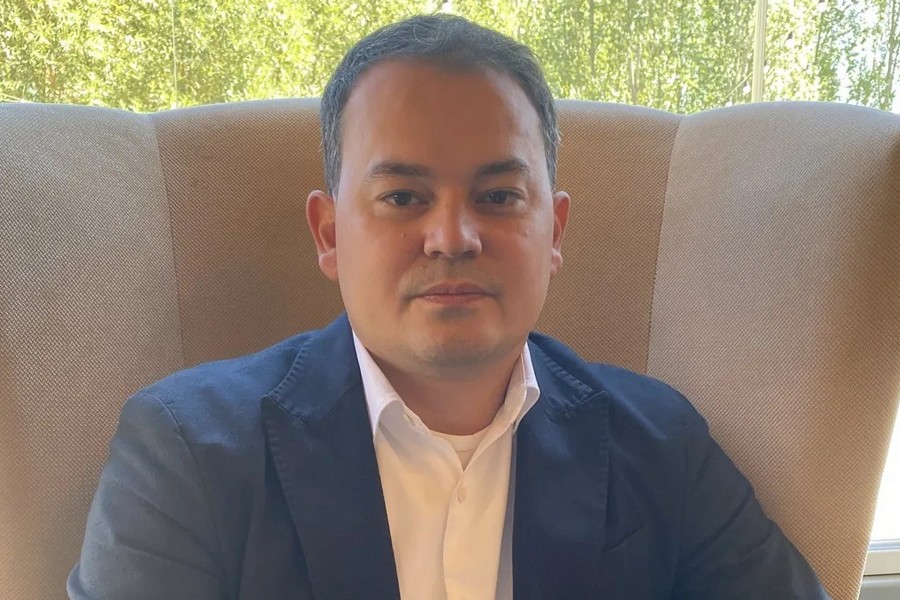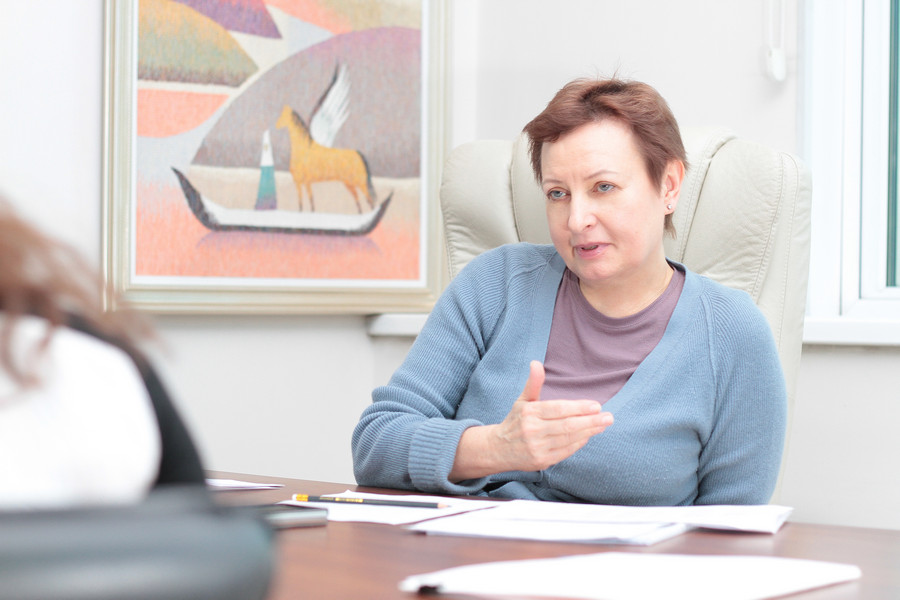U.S. Professor of Political Science Alexander A. COOLEY:
NEXT SIX-NATION TALKS WITH IRAN NOT TO BRING MAJOR BREAKTHROUGHS

The six mediator nations will soon arrive in Almaty to discuss Iran's nuclear program for the next round of talks. A leading U.S. expert on international issues, SCO and Central Asia, Tow Professor at Columbia University Alexander A. COOLEY shared his insight about a possible outcome of the talks and offered his opinion on the situation in the region.
- What do you expect from the upcoming talks on Iran's nuclear program? Is it possible to persuade Iran to stop 20% uranium enrichment and close the Fordo facility? Is it possible to achieve any compromise or concrete solutions?
- I donТt think we should expect any major breakthroughs at the talks coming up. I think, the dialog is the real meaning of the talks. In that way it is significant that Kazakhstan is an acceptable regional broker and mediator for the talks. In terms of actual outcomes, I would not expect any major breakthroughs. In part, because I am not sure that in terms of the agenda we are actually going to focus just on the nuclear issues. Iran would also like to bring to the table a number of other issues. Even that I think is contentious. As much as it is an opportunity to get together and discuss the issues and keep another process going, I think it's a good development.
- Do you think Iran is trying to build a nuclear bomb?
- It certainly seems as if they have aspirations towards that goal. I really would not like to speculate how close they are and what is the timetable.
- Do think direct Iran-US talks are possible?
- I think the US would strongly prefer this will be placed in the multilateral framework. This is the matter for the international community and for Iran to maintain its own international obligations to allow inspectors to go to the facilities that they want to visit. That should not be a US-Iran issue. That should be one of multilateral interests and Iran's sticking to its commitments it made in terms of its international monitoring.
- Can five permanent members of the UN Security Council and Germany during the talks recognize the right of Iran to peaceful use of nuclear energy? Can the U.S. and EU ease economic sanctions imposed against Iran?
- I think we are very far away from that. I think it has to be a sustained and prolonged indication of good will from Iran in compliance with requests and demands for external inspections until we can talk about the easing of the sanctions.
- From your point of view, if the nuclear talks fail, can world powers or the U.S. resort to non-diplomatic ways like force?
- I think it always remains a possibility in the event that diplomatic efforts donТt succeed and Iran crosses certain red lines in terms of its activities. I think the US has been clear that the option will be on the table. But it is not what is preferred.
- Recently NazarbayevТs advisor for political affairs Yermukhamet Yertysbayev said that Kazakhstan would give preference to Western values despite the fact that the country is located in Central Asia and between Russia and China. In your opinion, does his statement suggest that Russia and China are losing influence in Kazakhstan and Central Asian region? Can you see a possibility of a deteriorating Kazakh-Russian relations and growing U.S influence in the region?
- I am not sure that there is a growing US influence in the region. I think that the dynamic that you described is a way Nazarbayev perceives the need to rebalance it a little bit, perceives a certain disproportion of Chinese and Russian influence to the need to maintain that western vector. This is especially true in light of the announcement of the US disengagement and leaving the region, of not being as involved in the Central Asian region.а All the Central Asian countries want that western angle to maintain in some part, they don't want to be controlled by western powers or necessarily even heavily influenced by them. But it is all in their interest to maintain that vector now.
- A Kyrgyz court sentenced former Kyrgyz president Kurmanbek Bakiyev in absentia to 24 years in jail for abuse of power. Do you think that the Belarus authorities would ever extradite him?
- I donТt think so. I think there has been clearly a deal cooked up between former president Bakiyev and president Lukashenko over safe hрven. I think that if president Lukashenko loses power, the situation would be very different and the Belarusian government would be broadly open to this. But clearly they reached an accommodation agreement, but there are not a lot of safe havens for him after this. As long as Lukshenko is there, he is safe, but afterwards, we will see.
- Most international troops are scheduled to leave Afghanistan by the end of 2014. Should we expect rising terrorist activity and drug trafficking in Central Asia? Do you think the CA states can handle the consequences?
- I think that it is very difficult to say whether there would be more terrorist activity and more drug trafficking. I donТt actually subscribe to that it would be more terrorist activity as the result of this. My key perception of power vacuum, and certain countries may try influence the region more than others. I do think that the counterterrorism and counternarcotics frameworks are going to be used to justify future security interactions. On part of three powers Ц the US, Russia and China they are all going to justify their security engagement collaboration in these two manners. These are kind of vehicles that justify engagement as well as actual good faith initiatives to clamp down on these things, but especially the counternarcotics issue, which is very problematic and it's very tough when you have major orders such as state administrations and security services of Central Asian countries complicit on this.
- What role does Kazakhstan play in Central Asia and in the world politics now? Is Kazakhstan an influential player?
- Kazakhstan is certainly an influential player. Kazakhstan is clearly at the head of perceptions of the region. I think that part of the issue that Kazakhstan has to deal with is trying to keep the balance all the time. You know, it does not want to assume a regional identity or global identity or identify it with its immediate neighborhood.
This is where you get many contradictory roles. On the one hand, it is empowering because Kazakhstan feels as if it can maintain this crossroads commitment. On the other hand, I think, perhaps, it leads Kazakhstan to not having a type of positive or niche definition of its role. Such as its image in the international media, to which these talks will help to contribute to. So, I think that multivectorism is fine, but needs to be supplemented by something that is little more prescriptive. If it does view itself as a global identity, what that role is and what are the parameters of that interaction.
- Can Iran become a permanent member of the Shanghai Cooperation Organization? How would the West respond to that? What Tehran can bring to the SCO? Why is Tehran so desperate to join the SCO? Why are permanent members of the organization not willing to accept Tehran's membership?
- Iran has been desperate joining the SCO because it sees it as a hegemonic organization to balance pressure from the U.S. and a way to institutionalize ties with Russia and China.
As you say correctly, the prominent powers - Russia was supportive in 2007, China is very unsupportive of Iran because it knows exactly if it allows Iran get to the SCO, it will be on less special terms with the US. That is why when the SCO crafted its all criteria for membership it included this provision not having international sanctions against either. It was clearly meant for Iran.
In other words, they want to bail it with those objective rules of the organization. There is not a lot of an appetite left to let Iran join as a full member, not that anyone expected it. I do think that Iran continues to look for partners or allies and on that score Beijing and Russia become less supportive over the last few years and so Iran is going to continue to find some other allies.
- What do you think about color revolutions in Central Asia? Is there any possibility of similar developments in the next 5-10 year? What are the most likely scenarios for changing the ruling regimes in Central Asia? Elections or revolutions?
- I think neither. I donТt think we are likely to see revolutions in Central Asia. I think we are likely to see a political change or it would be an impacted transition, something like we saw in Turkmenistan.а
I think the more important thing to think about is not how we achieve the transition, but what happens after the regimes and what will be the process to legitimize their role.
This is will be one fear that I would have that the instability would not necessarily come during the transition period, it would come as new leaders try to solidify their credentials by killing the nationalism as a state building kind of device. That might make surface such issues as minority rights, sovereign claims and ethnic issues and bring them to the spot.
-Thanks for the interview!
February, 2013
© 2025 Interfax-Kazakhstan news agency
Copying and use of these materials without reference to the source is prohibited
Archive






